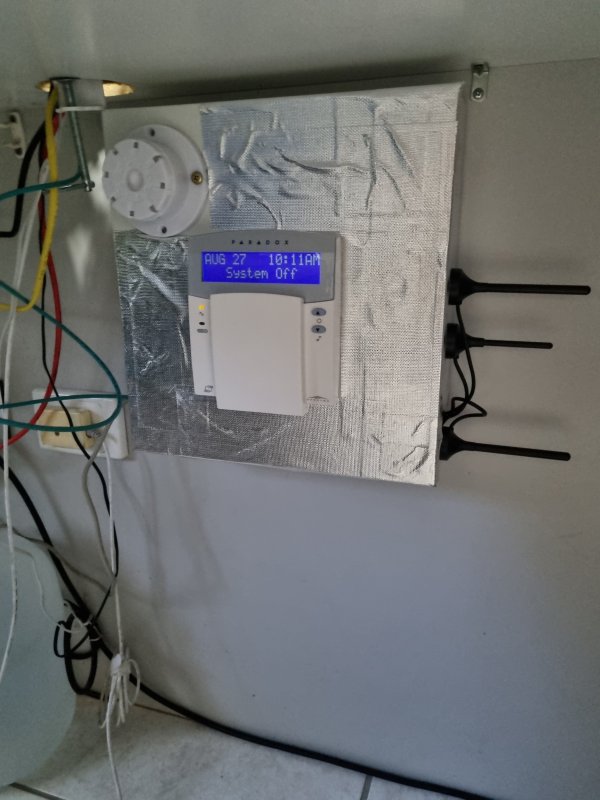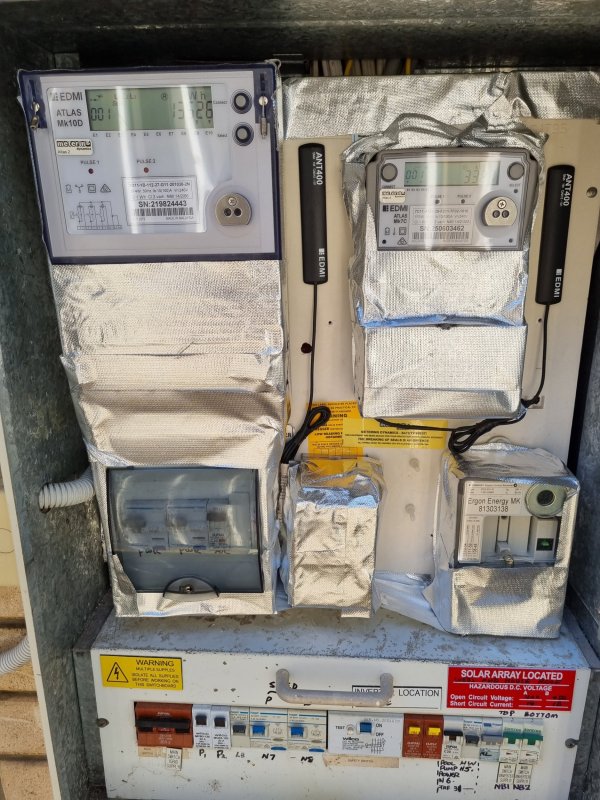I recently had a conversation with a couple of industry luminaries about managing interference from home electrical installations. Following this enlightening conversation, I have reduced any electrical interference with my hi-fi components by shielding several of my home electrical installations with aluminium foil and aluminium tape.
I have added a couple of photos to show what I have done. The first shows the house alarm system and the aluminium tape that I have applied, behind that I have taped alfoil. The alarm is in another room that backs onto the HiFi system.
The second photo shows the fuse box for the house. You can see the aluminium tape on the switching gear. Behind this I have also taped aluminium foil.
I also shielded a couple of other electronic devices in the home.
I am amazed at the difference this cheap tweak has made, the system is noticeably quieter, the instruments are better separated in the sound stage and sibilance has been reduced.
I wouldn't have believed this unless I had experienced it myself. A couple of dollars for an amazing improvement.


I have added a couple of photos to show what I have done. The first shows the house alarm system and the aluminium tape that I have applied, behind that I have taped alfoil. The alarm is in another room that backs onto the HiFi system.
The second photo shows the fuse box for the house. You can see the aluminium tape on the switching gear. Behind this I have also taped aluminium foil.
I also shielded a couple of other electronic devices in the home.
I am amazed at the difference this cheap tweak has made, the system is noticeably quieter, the instruments are better separated in the sound stage and sibilance has been reduced.
I wouldn't have believed this unless I had experienced it myself. A couple of dollars for an amazing improvement.



